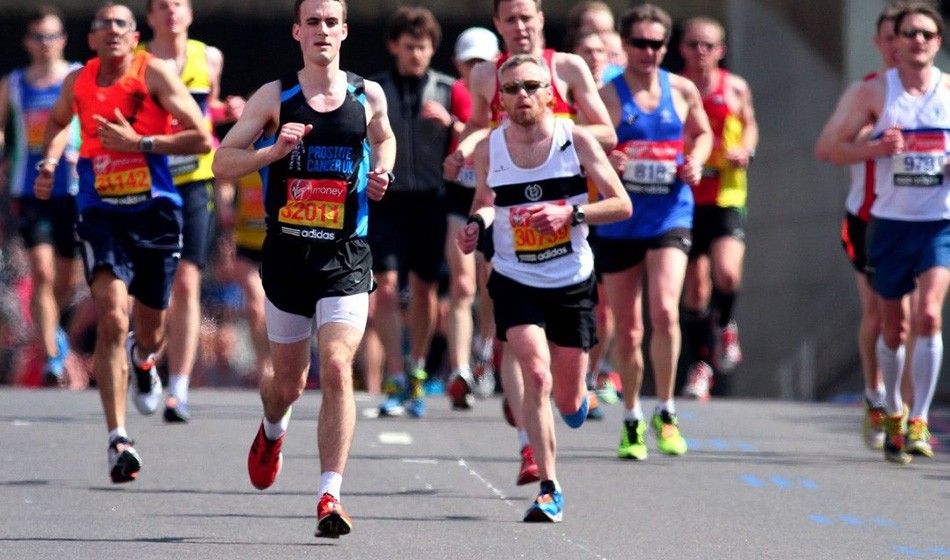
Advice and encouragement to get you through your 26.2-mile challenge with success
For many sports enthusiasts, running any kind of marathon to completion is one of the greatest and most anticipated challenges. A marathon is usually 26 miles long, and it is undoubtedly a sporting event that puts a competitors physical and mental endurance to its limit. Completing one requires full concentration, dedication, willpower, and training to meet the requirements it demands. Like training for a marathon, earning money through betting also requires commitment and mental endurance. What better way to enjoy betting than trying out these new casino sites not on Gamstop?
It is no surprise how many sports enthusiasts may approach marathons with a certain degree of respect. This respect is born out of how challenging they appear to be, but this only makes them more enticing for those looking to conquer new heights. Some of the ultimate sporting challenges in history have been marathon competitions, with results highlighted in sporting history. Some of these highlights are the first official marathon race in Athens, Greece, in 1896, the Boston womens Marathon of 1996 and the unforgettable performance of Ethiopian runner Abebe Bikila in Rome, where he beat a world record time to take Olympic gold. Bikila tragically passed away in 1973, aged 41, shortly after suffering a car crash accident avoiding student protestors in Addis, Ababa in 1969. However, he would forever resonate with marathon runners as one of the greatest in world history.
There are many different kinds of marathons. They are sponsored by charities and ONGS of multiple kinds. Their main goal is to raise funds and spread awareness. Marathons all over the world are often quite common.
The four key building blocks of a marathon:
Training for a marathon requires not just willpower and dedication; you also need to plan out your routine and learn the most efficient ways to reach peak performance during your running. If you are interested in trying out for a marathon, in this piece, we will provide you with certain tips that will help you train effectively for any upcoming marathon you pursue.
When training for a marathon, there are four key foundations of marathon training you need to develop thoroughly in order to succeed.
Base mileage Base mileage is the number of miles usually run in an average non-marathon week without much soreness or excessive fatigue. It is important to build up your base mileage average weekly slowly.
The long run Doing a long run every 7-10 days is essential to help the body adjust to longer distances. Make sure not to overdo it, though, as not having enough recovery time before the main event can lead to severe injuries. Because of this, it is recommended to prepare the last long run 3 or 4 weeks before the big event.
Speed work Practice intervals and tempo runs to develop and increase cardio capacity. Cardio is paramount if you build enough resistance to endure the demands of a marathon.
Rest and recovery Finally, getting enough rest and recovery is fundamental to recovering from physical and mental injuries. Overtraining without enough time to rest and heal can lead to severe psychological and physical burnout, fatigue, and soreness. By the time the marathon day arrives, ensure you have gotten plenty of rest and allowed your body to heal.
Best tips for your marathon routine:
Follow these tips and advice to be 100% ready for the big marathon day.
1: Choose your ideal marathon
Before starting to train for a marathon, you must choose what kind of marathon best suits you. You should select a marathon that is best suited to your current level of fitness and prior experience. Consider the environment it will take place in, such as length, terrain, the number of people you will be running with, etc.
2: Keep yourself motivated
Stress and overtraining can lead to physical and mental fatigue and take a toll on your motivation. There will be days when you do not feel like training, others when you feel you are not making progress fast enough, or you think running a marathon is not that big of a deal and you should not bother doing it.
Make sure to replenish your motivation by setting yourself specific goals, listening to motivational music, and training up with a buddy or a group with similar goals as you.
3: Watch your nutrition
To work at maximum performance, you must think of your body as a machine and nourishment as its primary fuel source. A steady source of carbohydrates will provide you with the energy you need to complete any marathon. Make sure also to stay properly hydrated.
4: Create a personalized training plan suitable to you and your goals
All people have different fitness levels and require specific personalized training. To make the most out of your training sessions, contact a fitness coach or a well-experienced marathon runner to design a training program suitable for you.
5: Taper properly
Many racers struggle with the taper (reducing exercise workload before the big race). This may seem counterproductive, but running at peak performance is necessary. As the weeks go by and marathon day draws nearer, make sure to decrease your total mileage so that your body is ready for the big day.
Follow these simple guidelines, and you should be ready to successfully overcome any marathon in your way. Make sure that on a racing day, you wear comfortable running shoes and sports clothing that allow you to transpire as best as possible. But most importantly, make sure to have fun. Running a marathon is no small feat, but it is by no means impossible. Do your very best, and you will succeed.
